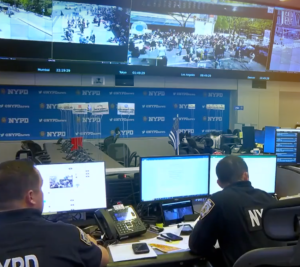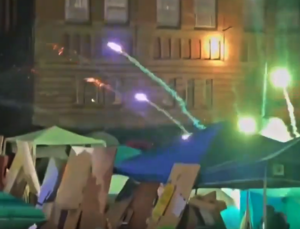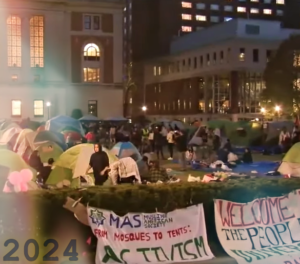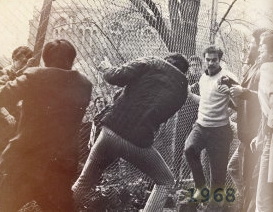Podcast: Play in new window | Download
Police, Politics And Violent Repression Against Pro-Palestine Student Protest
During the Occupy Wall Street protests of late 2011 and early 2012, the FBI treated the Occupy movement as a domestic terrorist threat. That was even though the Bureau acknowledged that organizers were calling for peaceful protests. Massive resources were deployed to track the movement, and FBI and counter-terrorism agents around the nation coordinated with local and federal law enforcement to track and gather intelligence, effectively serving as an arm for private business.
More than a decade later, college administrators are calling local armed police—some in riot gear—to arrest and in many instances brutalize hundreds of pro-Palestinian protesters in actions and encampments sweeping the nation. More than 1,000 protesters have been arrested over the last two weeks on campuses in states including Texas, Utah, Virginia, North Carolina, New Mexico, Connecticut, Louisiana, California and New Jersey. At UCLA, last week, after pro-Israel supporters carrying symbols of radical Jewish groups, not of student age, allegedly threw fireworks into a solidarity encampment, students defending the camp were attacked with stones and sticks. Yet, after an hour of violence, police standing nearby failed to intervene.
Guest – attorney Mara Verheyden-Hilliard from the Partnership for Civil Justice Fund and the Center for Protest Law and Litigation in Washington, DC. Mara is one of the nation’s leading litigators defending protesters and winning numerous reforms in police practices at mass assemblies and demonstrations.
—-
Legacy of Protest At Columbia University
One of the great events of the 60s is the Columbia student takeover of several key buildings on their campus in protest of the university’s complicity in the war against the Vietnamese people. The takeover was also a protest to building a gym in a public park in Harlem adjacent to Columbia University, considered to be a racist act.
The student actions at Columbia brought down a terrific repression. Hundreds of students were arrested and beaten. Our own Michael Ratner, a cofounder of Law and Disorder, and a law student at Columbia, was also beaten by the police. For Michael, there was no turning back. He went on to become one of the great movement lawyers of his generation.
Guest – anti-Vietnam war activist Eleanor Stein, like Michael, she was a student at the law school. Eleanor Stein went on to become an attorney, she is a climate change, environmental justice and human rights activist and advocate. She teaches climate change and human rights at the State University of New York, at Albany, and has just recorded a Continuing Legal Education session on this subject for the CUNY Law School. In addition, she facilitates international forums on climate change and energy. And for years, Professor Stein was an Administrative Law Judge at the NY state agency that regulates the energy industry.
—————————-




